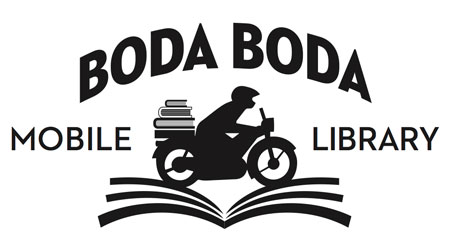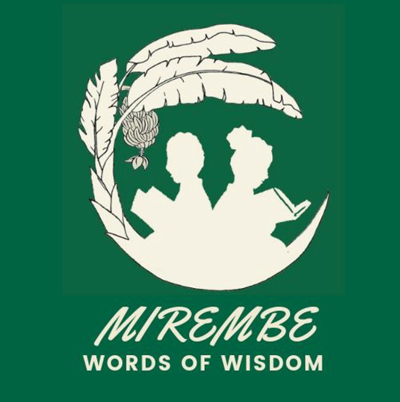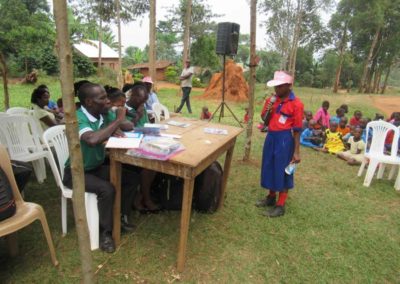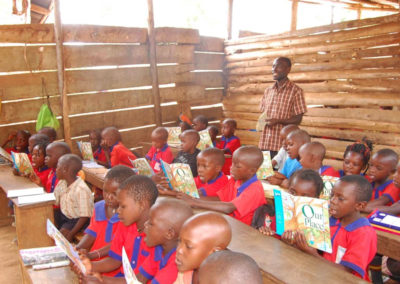
Mobile Library Journey – from USA to Uganda
Who do we serve?
Schools in the Kitongo, Mityana District, Kkungu, Kassanda District Masaka, Luwero and Biika. Schools invited us to be embedded so that all the school children would participate. Reading was given a special live slot to encourage literacy, knowledge, sharing, and improvements in language skills. With the introduction of the Mirembe Words of Wisdom Program at school level, this has created a literacy movement within these communities. As of January 2020, there were 2,000 students participating in this program. Currently in January 2023, the program is in 33 schools with over 10,000 kids participating.
Why here?
Though the United Nations has, with the use of Sustainable Development Goals (SDG’s), charged all countries to provide access and use of education to all children, the quality and quantity of these services varies significantly by country and region. Our target population are school-age children in elementary schools, as well as parents, and their families. In the process, utilizing a mental health prism, and realizing that knowledge is essential not only to mental health, but to health in general, we intend to expand these concepts within a perspective and vision of sharing books, as a method and medium of igniting a desire to read.
What is known so far, is that through reading as indicated above, the horizons expand to infinity. Our current experience on the ground has shown that as more children are exposed to books their curiosity and thirst for learning and knowledge increases exponentially. The sparkle in the eyes, and the excitement that we have noticed is extremely exhilarating to watch, as if a hidden spirit has been now awakened in these children’s minds.
The program plans to use this reading component, scaled up to include books with local language content and themes. This would enable us to expose children to culturally and linguistically compatible content. Subject matters could include reading materials on nutrition, environment protection, basic hygiene, health related topics, games and plays to appeal to the children’s needs and imaginations.
How does it work?
There are a number of creative ways that we have come up with to increase access and connection to the children. The primary means of access is through local schools who have invited us into their buildings and enabled us to bring the books and distribute them to the children one classroom at a time. Through collaborations and partnerships, we have built this program to include 5 sub communities, including those in urban and rural areas as well as economically distressed areas.
Librarians enter each school and help facilitate up to two hours of guided reading lessons in each class, every week. Each child is assigned a record book where they write down what book they are reading and what they have learned from it. These record books are kept by the library staff to ensure the work completed in them is by the students. If they cannot write yet, students are still encouraged to formulate their letters as a way of showing and documenting what they have learned. In this process, there’s a relationship that is formed between the teacher and each student, knowing the reading capacity, the thought process, and the gift of knowledge that is unleashed.
Through this relationship, the students also begin to feel comfortable to talking about their personal lives, thereby creating an opportunity for a conversation. That conversation is enabled to engage and develop the thought process, in search a manner that also builds language and enhances self-expression.
How Does Reading Promote Community Wellbeing and Functioning?
As children bring home books and sit down to read by themselves and/or to their young siblings, the parents become curious and become about the prospects. Many are quoting how this is the first time their children have had a chance to hold and own a book, as families have been unable previously to afford books at all. Parents have bragged about their households now being lit up by a desire to learn that they themselves were denied or felt was out of range for them to experience.
Consequently, they have asked not only to keep the program going, but to also include an opportunity for adult readers to be included. This, in their view will allow them not only to encourage their children to read, but also open up their own eyes to the same privilege and medium.


